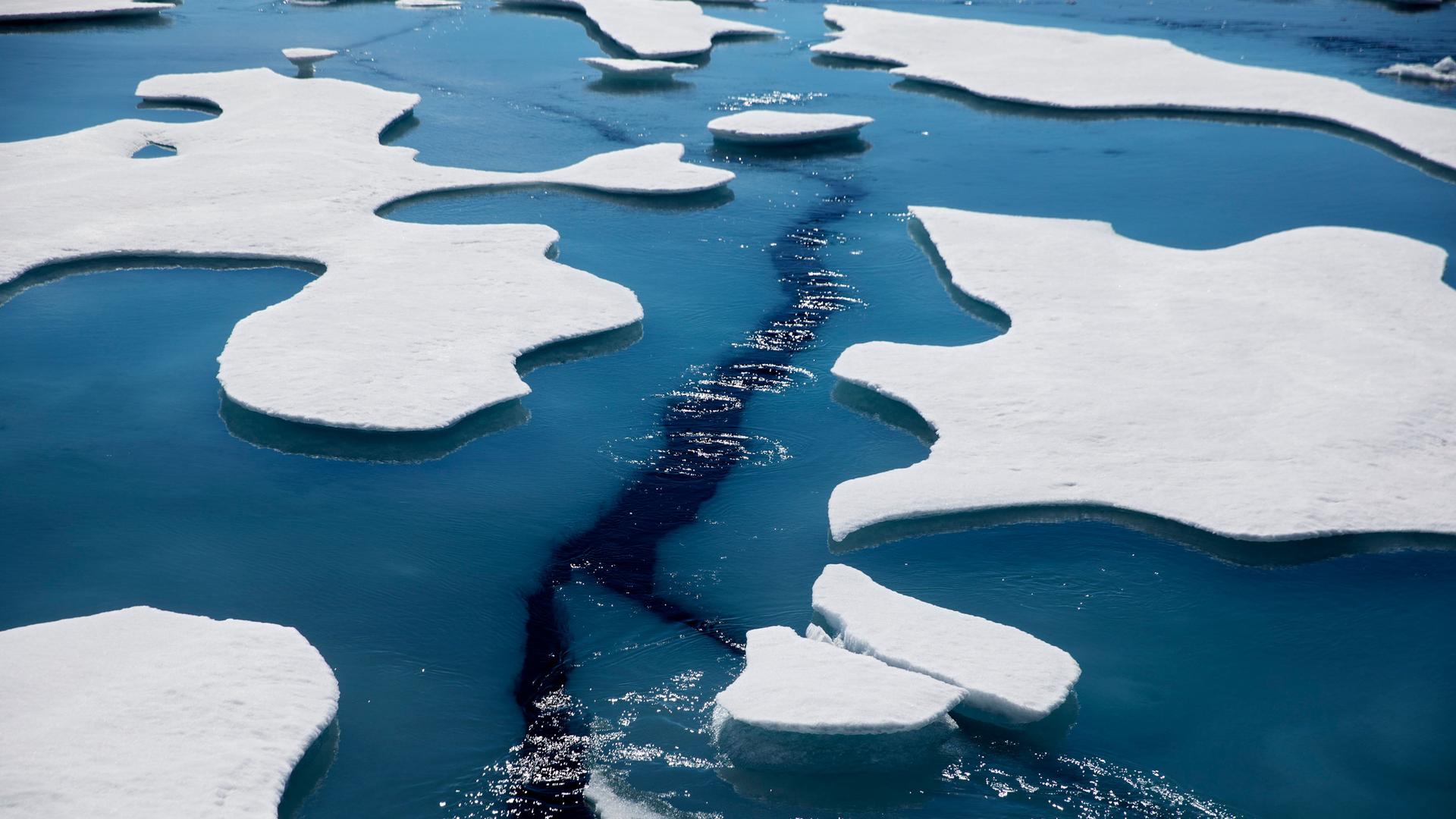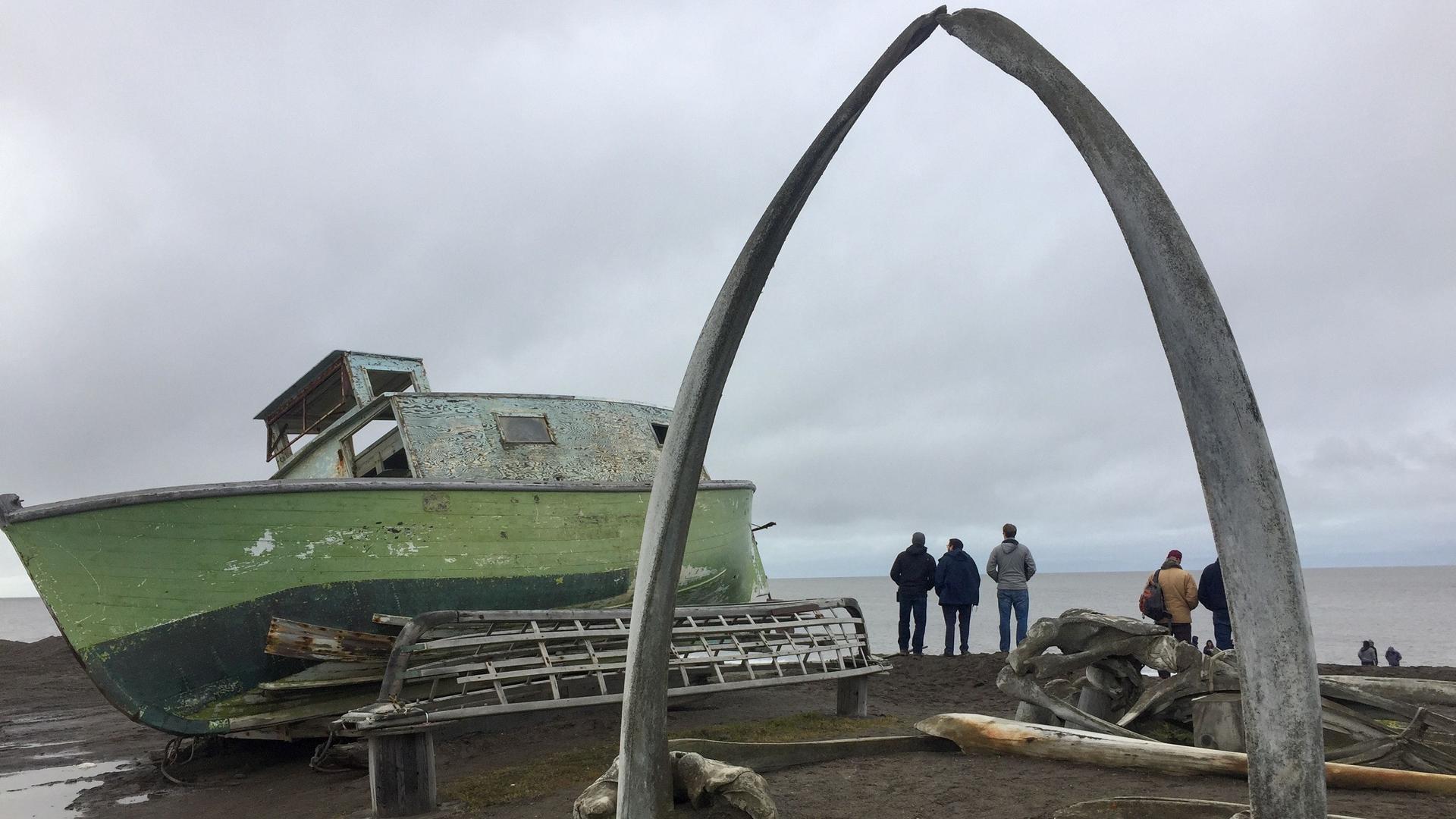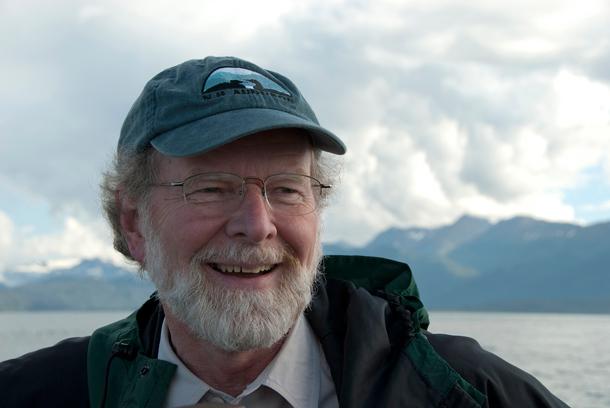Arctic Ocean
We want to hear your feedback so we can keep improving our website, theworld.org. Please fill out this quick survey and let us know your thoughts (your answers will be anonymous). Thanks for your time!
Melting Arctic sea ice doubles the chances of harsh winters in other parts of the world
When most people hear the term “global warming,” they naturally think of air temperature. In reality, more than 90 percent of the warming caused by greenhouse gases happens in the oceans. Much of this warming takes place in the waters in and around the Arctic Ocean, leading to increasingly rapid melting of sea ice. A new study links this melting to cold, harsh winters that are becoming more common in parts of the world.
Scientists are trying to get to the bottom of those mysterious new holes in Siberia
The discovery of two giant holes in the ground in far northern Russia is raising all kinds of speculation about their origin. No one yet knows for sure how they were formed, but a leading scientist is pointing to an ever-more usual suspect—climate change.
Scientists are trying to get to the bottom of those mysterious new holes in Siberia
The discovery of two giant holes in the ground in far northern Russia is raising all kinds of speculation about their origin. No one yet knows for sure how they were formed, but a leading scientist is pointing to an ever-more usual suspect—climate change.
Today’s Arctic explorers follow in the footsteps of history
Some 400 years after Captain Henry Hudson was lost navigating the treacherous waters of the Canadian Arctic, there are still those who dare to challenge the unforgiving region.Some 400 years after Captain Henry Hudson was lost navigating the treacherous waters of the Canadian Arctic, there are still those who dare to challenge the unforgiving region.
Subscribe to The World’s Latest Edition podcast for free using your favorite podcast player:


